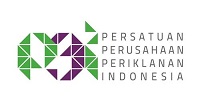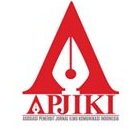- Focus and Scope
- Section Policies
- Peer Review Process
- Publication Frequency
- Open Access Policy
- Publication Ethics and Malpractice Statement
- Screening For Plagiarism
- Reference Management
Focus and Scope
Jurnal Manajemen Komunikasi is an open access journal published by Communication Faculty, Universitas Padjadjaran. We publish twice a year on April and October. Jurnal Manajemen Komunikasi focused on empirical and theoretical studies on Communication Management. Jurnal Manajemen Komunikasi open for manuscripts that had focus on the following issues:
- Strategic Communication in profit and nonprofit organization, Strategic communication is about policy-making and guidance for planned communication activity within or between organizations. It is including planning, organizing, implementing, and evaluating.
- Information and Communication Technology, the use of Information and Communication Technologies (ICT) in human communication, for interpersonal, group, organizational and mass purposes.
- Business and Marketing Communication, resources and process on a diverse range of business communications from traditional to mediated advertising and promotion to integrated marketing communications.
- Communication Training and consulting, all aspect of helping people or organization grow and develop through communication training and consultancy. It is including the resource, the process and the industry.
- Political communication, political communication and campaign strategy, whether it be local or national. It is including mediated or nonmediated communication.
- Social communication, communication as an important part in social movement toward social change for human to have a better life.
- Media Industry and Management, identifies and describes strategic and operational phenomena and problems in the leadership of media enterprises. Media management contains the functions strategic management, procurement management, production management, organizational management and marketing of media enterprises.
- Cross-cultural communication, communication between people with different culture (for instance race, ethnic, or socio-economic)
- Instructional communication, centers on the role that communication plays in the teaching-learning process independent of the type of student learner, the subject matter, or the instructional setting
Section Policies
Artikel
Peer Review Process
Every article that goes to the chief editorial will be send to section editor through Initial Review processes. Then, the articles will be sent to the peer reviewers to get Double Blind Peer Review Process. Then, the articles will be returned to the authors to revise. These processes take 2 months for a maximum time. In the each manuscript, peer reviewer will be rated from the substantial and technical aspects. The peer reviews have expertise in media and analysis text, political communication, health communication, social communication, education communication, organizational communication, and intercultural communication. They were also experienced in the prestigious journal management and publication that was spread around the national and abroad.
Publication Frequency
Jurnal Manajemen Komunikasi will published twice a year in April and October.
Open Access Policy
Access rights of entire publication content of this journal is open access for non-commercial purposes [see copyright provisions].
Publication Ethics and Malpractice Statement
Jurnal Manajemen Komunikasi concerns fully on publication ethic of whole publication process of the journal and on all received articles. As a quality assurance of a journal, Jurnal Manajemen Komunikasi assures professionalism of every party from the journal management, authors, editors and reviewers by referring to Jurnal Manajemen Komunikasi Publishing Ethics adopted from Elsevier Publication Ethics and Publication Malpractice Statement, and COPE's Best Practice Guidelines for Journal Editors, as follow:
Duties of Editors
Editors evaluate submitted manuscripts exclusively on the basis of their academic merit (importance, originality, study’s validity, clarity) and its relevance to the journal’s scope. The Editor-in-Chief has full authority over the entire editorial content of the journal and the timing of publication of that content. Editors and editorial staff will keep confidentiality of the article. All submitted articles considered for publication undergo peer-review by at least two reviewers who are expert in the field.
Duties of Reviewers
- Peer review assists editors in making editorial decisions and, through editorial communications with authors, may assist authors in improving their articles. Only qualified referees will be invited to review an article. Any article received for review is a confidential document and will be treated as such; it will not be shown to or discussed with others except if authorized by the Editor-in-Chief. Reviews would be conducted objectively and observations formulated clearly with supporting arguments so that authors can use them for improving the article. Reviewers will identify relevant published work that has not been cited by the authors and will also notify the editors of any substantial similarity or overlap between the article and any other article (published or unpublished).
- Any invited referee who has conflicts of interest resulting from competitive, collaborative, or other relationships or connections with any of the authors, companies or institutions connected to the manuscript and the work described will be immediately replace with more fair referee.
- Unpublished material disclosed in a submitted article will not be used in a reviewer’s own research without the express written consent of the authors. Information or ideas obtained through peer review will be kept confidential and not used for the reviewer’s personal advantage.
Duties of Authors
- Authors of original research should present an accurate account of the work performed and the results, followed by an objective discussion of the significance of the work. Authors should ensure that they have written and submit only entirely original works, and if they have used the work and/or words of others, that this has been appropriately cited. Publications that have been influential in determining the nature of the work reported in the article should also be cited. Papers describing essentially the same research should not be published in more than one journal or primary publication. Hence, authors should not submit for consideration a manuscript that has already been published in another journal.
- Only persons who are considered to have significances contributions should be listed as authors in the article. All persons who indirectly made substantial contributions to the work reported in the article must not be listed as an author, but should be acknowledged in the "Acknowledgements" section. Authors should ensure that they have properly acknowledged the work of others by citing publications that supported the nature of the work..
- When authors discover significant errors or inaccuracies in their own published work, it is their obligation to promptly notify the journal’s editors or publisher and cooperate with them to either correct the paper in the form of an erratum or to retract the paper. If the editors or publisher learns from a third party that a published work contains a significant error or inaccuracy, then it is the authors’ obligation to promptly correct or retract the paper or provide evidence to the journal editors of the correctness of the paper.
- Authors who publish with this journal agree to retain copyright and grant the journal right of first publication with the work simultaneously licensed under a Lisensi Creative Commons Atribusi-BerbagiSerupa 4.0 Internasional Authors are able to enter into separate, additional contractual arrangements for the non-exclusive distribution of the journal's published version of the work (e.g., post it to an institutional repository or publish it in a book), with an acknowledgement of its initial publication in this journal. Authors should sign copyright transfer agreement when they have approved the final proofs sent by Jurnal Manajemen Komunikasi prior the publication
- Reviewer/ editor are competent in the scope of library and information science. As the evidence of papers and their competence, reviewer/ editor candidates will provide a link or URL address of scientific sites, such as Google Scholar/ResearchGate/Orcid/Scopus, and so forth.
Duties of the Publisher
- The publisher, together with the editors, take reasonable steps to identify and prevent the publication of papers where research misconduct has occurred, and under no circumstances encourage such misconduct or knowingly allow such misconduct to take place.
- Each article accepted and published in the Jurnal Manajemen Komunikasi, its grammar and sentences are checked with Grammarly® application and is recommended to use Reference Manager application Mendeley.
- This journal utilizes the Kandaga Unpad (Unpad OneSearch), Indonesia One Search (IOS), Indonesian Scientific Journal Database (ISJD), and Indonesian Publication Index (IPI) system to create a distributed archiving system among participating libraries and permits those libraries to create permanent archives of the journal for purposes of preservation and restoration.
Screening For Plagiarism
Jurnal Manajemen Komunikasi will not tolerate for any plagiarism. Therefore, Author should check their article through plagiarism checker application. For instance, turnitin.com application or other applications. If an article is indicated as a plagiary, it will be rejected and will not be reviewed.
Reference Management
The references should use a reference application management such as Mendeley, End Note, or Zotero.











21.png)



